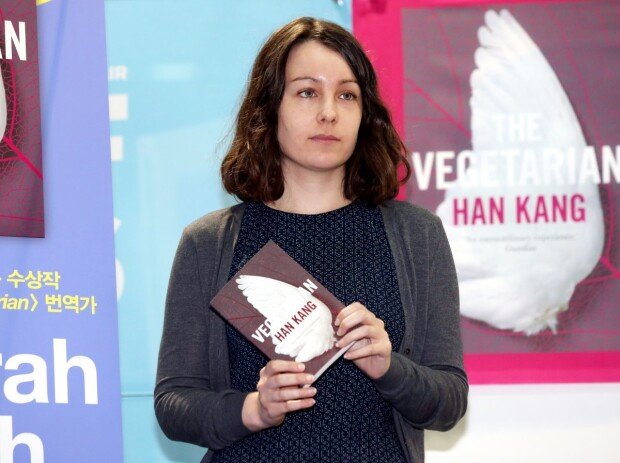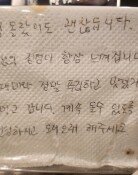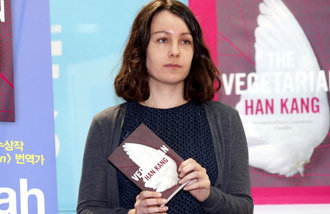Moved by how Han Kang’s readers connect Gwangju and Gaza
Moved by how Han Kang’s readers connect Gwangju and Gaza
Posted November. 19, 2024 07:44,
Updated November. 19, 2024 07:44

"As one of her many thousands of readers around the world, I have enjoyed witnessing the ongoing recognition of Han Kang's extraordinary body of work," said Deborah Smith, the British translator who introduced Han Kang’s works to the English-speaking world, including her Booker Prize-winning novel.
On Monday, the Literature Translation Institute of Korea released Smith’s essay, published in the English-language quarterly Korean Literature Now (KLN). Smith is widely credited with translating Han’s acclaimed works, including The Vegetarian, which won the 2016 Man Booker International Prize, as well as "Human Acts" and "The White Book." Her translations have played a key role in bringing Han’s literature to a global audience.
In her essay, Smith reflects on the polarized reactions following Han’s Booker win, including criticism of her translations and excessive praise. “There was a lot of criticism of me and my translation, claiming that errors were due not only to inexperience but to a lack of respect and care. It was savage and personal and worse behind the scenes. At the other extreme, my translation was over-hyped to downplay Han’s artistry." "In all this time, I’ve come to a deeper understanding of why I became a translator in the first place," she said despite these challenges. “Reading and translating Han Kang (an inextricable binary for me) as one of being arrested by razor-sharp images, which arise from the text without being directly described there.”
Smith’s essay also explores the literary significance of “The Vegetarian” and “Human Acts.” "I am one of the many women who have found Yeong-hye’s (The Vegetarian's protagonist) story to be neither extreme nor bizarre," she said, expressing empathy for the character’s strong sense of agency. She praised the novel, saying, "The Vegetarian is a work which invites a particularly personal form of reading, the kind that those ‘old-school men’ would disapprove of, among a particular kind of reader."
박선희 기자 teller@donga.com
Headline News
- Biden authorizes Ukraine to use long-range missiles against N. Korea's troop deployment
- Democratic Party criticizes court in charge of Lee’s case for ‘judicial murder’
- Jannik Sinner achieves remarkable success on tennis court
- Xi Jinping asks Yoon to visit China first
- Chey Tae-won appointed as chair of APEC CEO Summit







